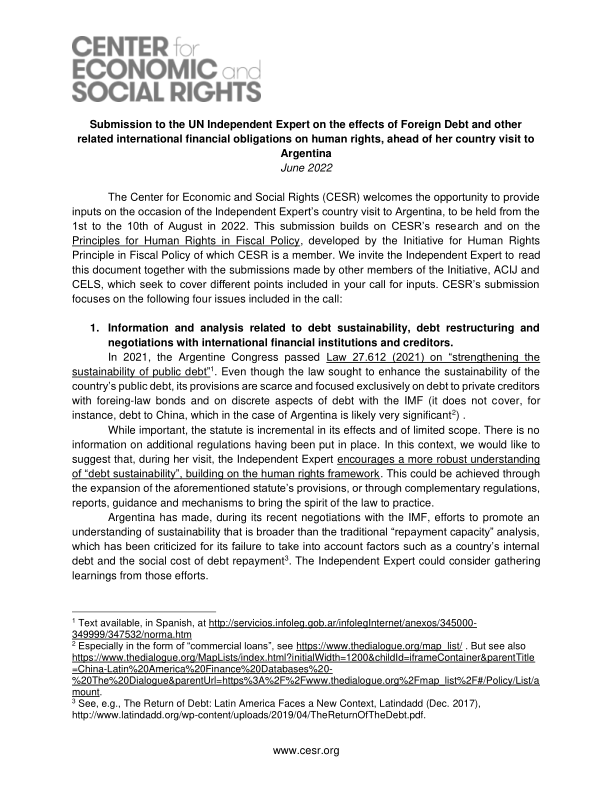In the context of the upcoming country visit to Argentina of the United Nations Independent Expert on foreign debt and human rights, CESR shared relevant information and insights on how the human rights’ framework should guide reforms and analysis of the debt crisis in the country.
Our submission to the Independent Expert stressed the need to assess the need to finance economic, social, cultural and environmental rights when evaluating a country's debt sustainability, which is often deprioritized in the name of “debt servicing”. The document also notes how Argentina may be incomplying with its obligation to mobilize the maximum available resources to secure social rights due to its large, opaque and inequitable tax benefits, and because of the resources lost to illicit financial flows. On the latter, the submission also highlights the cross-border component of Illicit financial flows and the obligations that States have to people beyond their borders under international law. Because of these extraterritorial obligations, States must promote international cooperation with a human rights focus, support national efforts to realize rights, and abstain from any conduct that undermines another State’s capacity to fulfill their own obligations, including by facilitating tax abuse.
The submission builds on previous work done with our Argentine partners ACIJ and CELS around debt and human rights in that country, including a workshop with debt-expert Karina Patricio -which gathered social movements, academia, public officers and media representatives-, and a public event to discuss the rights’ implications of Argentina’s debt to the IMF. It similarly applies the relevant standards of the Principles for Human Rights in Fiscal Policy, launched by CESR and partners in 2021.
